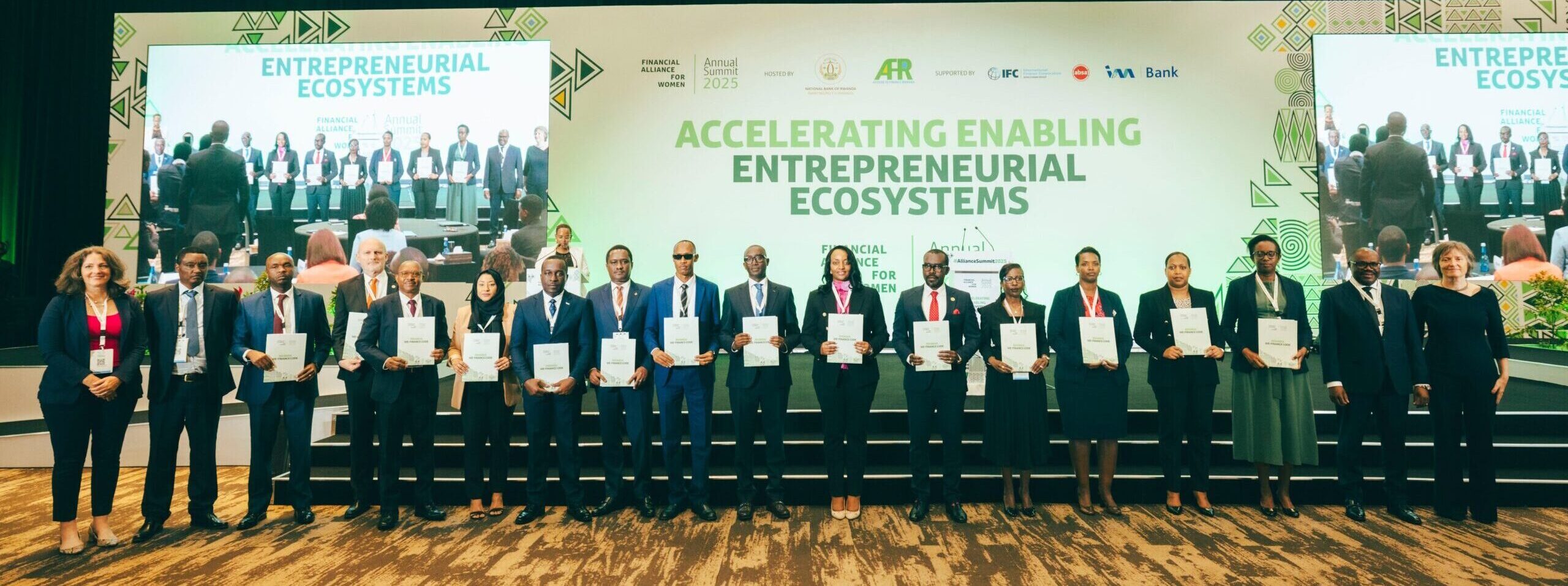Foreword for the WE Finance Code Inception Report
 Soraya M. Hakuziyaremye,
Soraya M. Hakuziyaremye,
Governor, National Bank of Rwanda
Since its launch at the 2023 World Bank–IMF Annual Meetings, the Women Entrepreneurs Finance Code has achieved remarkable progress—mobilizing over 30 countries and hundreds of financial institutions around a shared goal: closing the gender finance gap through data, leadership, and coordinated action. The growing momentum of this global movement has been truly inspiring, and Rwanda is proud to be part of it.
At the National Bank of Rwanda, we view the Code as more than a statement of intent. It is a practical, evidence-based framework for building a more inclusive financial system. In Rwanda, women own 40% of businesses yet make up only 25% of borrowers. These numbers are not just statistics—they represent real opportunities for growth when systemic barriers are addressed.
Our journey toward inclusion is gaining ground. Today, Rwanda’s formal financial inclusion rate stands at 92%, with the gender gap in formal access reduced to from 11% to 4% in the last 8 years. Women’s adoption of mobile money has surged, and digital financial services are increasingly within their reach. These advances open the door to deeper impact—by improving access to capital, tailoring financial products to women’s needs, and scaling both financial and non-financial services that empower high-potential women entrepreneurs.
In May 2025, Rwanda took another important step by formally launching its national WE Finance Code. The Code was endorsed by the National Bank of Rwanda, the Ministry of Trade and Industry, all banks in the country, the Rwanda Bankers Association, and the Association of Microfinance Institutions in Rwanda—an unprecedented show of sectorwide alignment. As part of this initiative, the National Bank of Rwanda is also collaborating with the World Bank and the financial industry institutions to enhance the availability and use of gender-disaggregated MSMEs data.
The WE Finance Code complements Rwanda’s broader national strategies that champion equitable access to capital and opportunity. As regulators, our responsibility extends beyond maintaining financial stability—we must also ensure that the financial system serves the real economy and benefits all citizens.
The Code gives us a shared language, clear metrics, and a global community of practice. By learning from each other, we can continue to build financial systems that are inclusive, resilient, and ready for the future.

